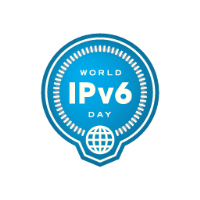
The era of mass Internet attacks is over
A lot of the easy money in Internet attacks is gone. Now you have to do some homework and pick your targets more carefully to get a rewarding rate of return on your crimes.
A report from Cisco says that the nature of attacks on the Internet is changing. Dumb, old-fashioned mass-spammed attacks, and spam itself, are losing their financial motivation and decreasing in frequency.

Phishers have found a new use for Google Docs -- stealing your identity
The free cloud applications, particularly Google spreadsheets, are gaining popularity as a phishing platform. I knew the Google Docs spreadsheet was good for something.
One of the main jobs of a phishing site in selling itself is to come from a trustworthy domain, and that's why Google Apps is so popular. Nobody is going to block *.google.com or even spreadsheets.google.com. So not only will some people be more inclined to believe that a phishing page is genuine, but it's less likely to be blocked by reputation systems. You even get to use HTTPS on your attack page, courtesy of Google.

The Frugal Admin: Office 365 tempts me to give up Google Apps, and it will tempt you
There's no question that I like what I see in the demos of Office 365. A little research makes me want it even more. But I'm cheap, and so are a lot of the small businesses it supposedly targets. I think it can be competitive for small business and also end up selling a bunch of Windows phones. But can it compete with free?
Office 365 really does look better, richer, and cooler that Google Apps for Business, but it can be much more expensive. Many businesses will be willing to pay for the nice stuff, at least for a while, but most small businesses don't spend a lot more money than they need to on these things. I like to think of myself (and my domain which is both for my business and personal use) as one of those cheap small businesses.

Mozilla to start thinking about enterprise needs
Firefox is an [in]famously difficult product for IT to deploy and manage in large organizations. They may be dragged kicking and screaming into it, but Mozilla will now begin to at least consider the needs of enterprises.
The first version of Firefox was released on Nov. 9, 2004. Its usage share worldwide seems to be in the neighborhood of 27 percent, but in some countries, like Germany, it's much higher, even a majority of all users. That's actually quite an accomplishment for a product which pointedly ignores the needs of enterprises.

Mozilla and Google force businesses to use Internet Explorer
Rapid updates, manageability gaps make Chrome and especially Firefox tough to accept for large businesses with managed networks and stability concerns.
In my experience dealing with businesses, it's rare to find them using anything other than Internet Explorer as their preferred web browser, and no surprise why. The other major browsers make life really hard for IT support. Whatever your opinion, it's way easier to support IE in an enterprise than Firefox or Chrome.

You can't trust consumers to protect themselves
Whatever happened to disposable credit card numbers? They're a great idea and they can work really well, but few banks offer them and even those don't push them really hard. The problem is users: To use these numbers, users would have to think about their own security.
Almost every security proposal, especially the really broad ones, has an element of user education in it. "We've got to train users to look for these things and avoid them" or something to that effect. Many security experts will sigh and tell you that it's like teaching math to your dog. Not only will they not learn it, they don't even get the point.

My town government is kept offline and my taxes are kept up thanks to the dead tree lobby
I'm involved in local government in my town (Maplewood, NJ) and I'm always looking for ways for the town to save money in order to keep our outrageous property taxes under control. So I was heartened by a proposal for a state law permitting municipalities and individuals to publish legal notices on the town web site instead of in a local newspaper.
Legal notices are one of the main things keeping small, local newspapers in business. They're big, easy money. My dinky town has budgeted $20,000 for legal notices this year. The paper just has to reproduce the exact text provided to them; no sales, no editing, pretty much pure profit.

Will the US government be more efficient with iPads and Google?
What legacy will Vivek Kundra, the first Federal Government CIO, leave when he goes to academia? For all the grand plans to modernize, rationalize and streamline IT, so far he's mostly taken the government out computer shopping at Best Buy.
Most of the news stories about his recent resignation have focused on his plan to move the government into cloud computing and whether it would survive his departure. But Kundra also modernized government in other ways, with a flare for adopting some consumer technologies.

One week on Gmail has me pining for Outlook
I love Microsoft Outlook. I know a lot of people hate it, but I'm inclined to believe that they don't use Outlook well enough. I've been using it as my primary email program since the 1990s, and there's not a lot I can complain about. But I quit it at the beginning of this week. It's working well in some ways, but in others I have some buyer's remorse.
There's a long story behind how I got to this point, but the bottom line is that my email domain is on Google Apps and I have an Android phone. By switching to using Gmail, Google Calendar and the other Google Apps. I gain a lot in terms of mobility. All of my data is in the same cloud. I can move from one computer to another, and everything I read on one looks read on the other.

If you're a juror, don't 'friend' the defendant
A juror in a drug trial in England will face contempt of court charges for contacting one of the defendants in her trial through Facebook, according to a ripping good story in the Telegraph. Corruption and stupidity compete for space in this episode which also involves a police officer who sold sensitive information to drug dealers for a BMW and Premier League match tickets.
Joanne Fraill, 40, is the juror who allegedly chatted online to Jamie Sewart. Sewart had already been acquitted, but verdicts on other defendants were still being discussed. Sewart also faces contempt charges for asking Fraill for details on the jury deliberations. Both could face jail time if convicted.

"Restart to Safari" mode turns Mac into overpriced web terminal
Another great scoop from MacRumors: All the recent attention iOS 5 has distracted people from the new beta of OS X Lion. Looks like Apple snuck a new feature, "Restart to Safari," into the newest beta, which gives Lion a browser user interface. Gee, kinda like Chrome OS. Perhaps it's no coincidence that both browsers are based on WebKit.
Nearby is a tough-to-read screen shot from MacRumors of what looks like the Guest Login screen for that mode. The mode allows you to boot Lion into Safari and just Safari. Superficially it resembles ChromeOS on a Chromebook, but there's no indication that Apple intends to sell computers that boot only into the browser, as Google is doing.

Is it child abuse to give my kid a Chromebook?
Remember me? I'm the one who wrote right here at Betanews that Google Chromebooks are a waste -- gimme Windows and a good browser -- just 24 days ago. Gulp. I might have been a little hasty and over-generalized in my perspective. You tell me.
My daughter is nine and coming out of third grade. We've decided she needs to work on her writing over the summer -- on a computer, and learn how better before going into fourth grade.

10 Things that suck about Java
There was a time when important people claimed that Java was the future of computing and major industry companies -- even Microsoft! -- bought into it. Sun Microsystems founder Scott Mcnealy proclaimed Java as the future of, well, everything -- like the light switch to the room where you're reading this sentence. Now Java has degenerated into an unpleasant legacy technology that causes way more problems than it solves. Sun is gone, having been bought by Oracle. Is Java a corpse stinking up the room it was once meant to power? You tell me after reading my list of 10 things that suck about Java.
1. "Write once, run almost everywhere. Usually." Sun always grossly exaggerated the possibilities of portability with Java. So my Java database server won't run on my Java smartphone? What's up with that? But even conventional tasks that you would expect to work, say, on Mac and Windows, don't always. Version proliferation (see #5) exacerbates the problem.

Shields down -- IPv6 is not ready for attack
Get ready folks for the Information Superhighway of the future, one with 2128 lanes.
It's World IPv6 Day, a day when we're all supposed to check our readiness for the next version of IP, or Internet Protocol, the Internet Layer protocol of the Internet and almost all networks these days. IPv6, of course, is an old story, since it was long ago that we recognized the address space of IPv4 would run out, and we're almost there. The IPv6 address space, as I have written before, is so large that we may just take it with us to the first few planets we colonize.

Will Cyber World War I be outsourced?
Earlier this week, Google claimed to have uncovered a password-stealing campaign that originated from Jinan, China, and targeted senior U.S., officials and other prominent individuals. The Chinese government later denied involvement. The attacks' origins aren't being disputed so much as who is responsible.
The most famous cases of alleged "cyberwar" have some common characteristics that are at the heart of the problem. It's never clearly the governments conducting the attacks and it's plausible that outside actors are responsible. This leads to the "attribution" problem of cyberwar, that it's never crystal clear where retaliatory measures should be targeted.

